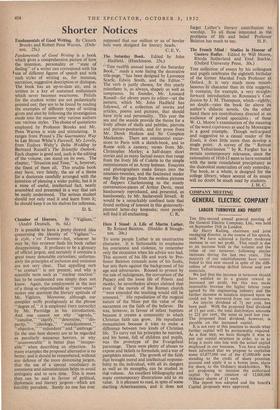To some people Luther is an unattractive character. It is
fashionable to emphasise his coarseness and violence, to remember only the occasions when his advice was bad. This account of his life and work by Pro- fessor Bainton conceals none of his faults, but sets them against the background of his age and adversaries. Roused to protest by the sale of indulgences, the corruption of the Papacy and the loose life of Priests and monks, he nevertheless always claimed that even if the morals of the Roman church "were emended the teaching would still be unsound." His repudiation of the magical nature of the Mass put the value of the sacrament on the faith of the believer. He was, however, in favour of infant baptism because it creates a community in which Christian faith can grow. He repudiated monasticism because it tries to make a difference between two kinds of Christian life. To carry out his principles he married, and his home, full of children and pupils, was the prototype of che Evangelical parsonage. There were plenty of abuses to expose and beliefs to formulate, and a war of pamphlets ensued. The growth of the faith that brought moral and intellectual responsi- bility to the individual, with all its dangers as well as its strengths, can be studied in this volume. An excellent bibliography and many contemporary illustrations add to its value. It is pleasant to read, in spite of some startling Americanisms, and it does not forget Luther's literary contribution to worship. To all those interested in the problems of life and belief Professor Bainton has much to say. H. F.


















































 Previous page
Previous page